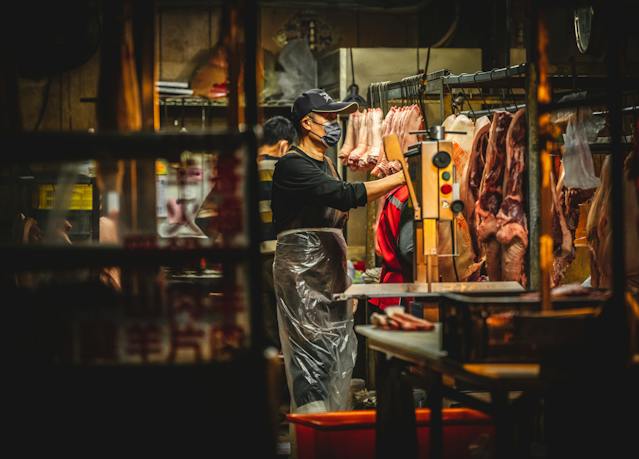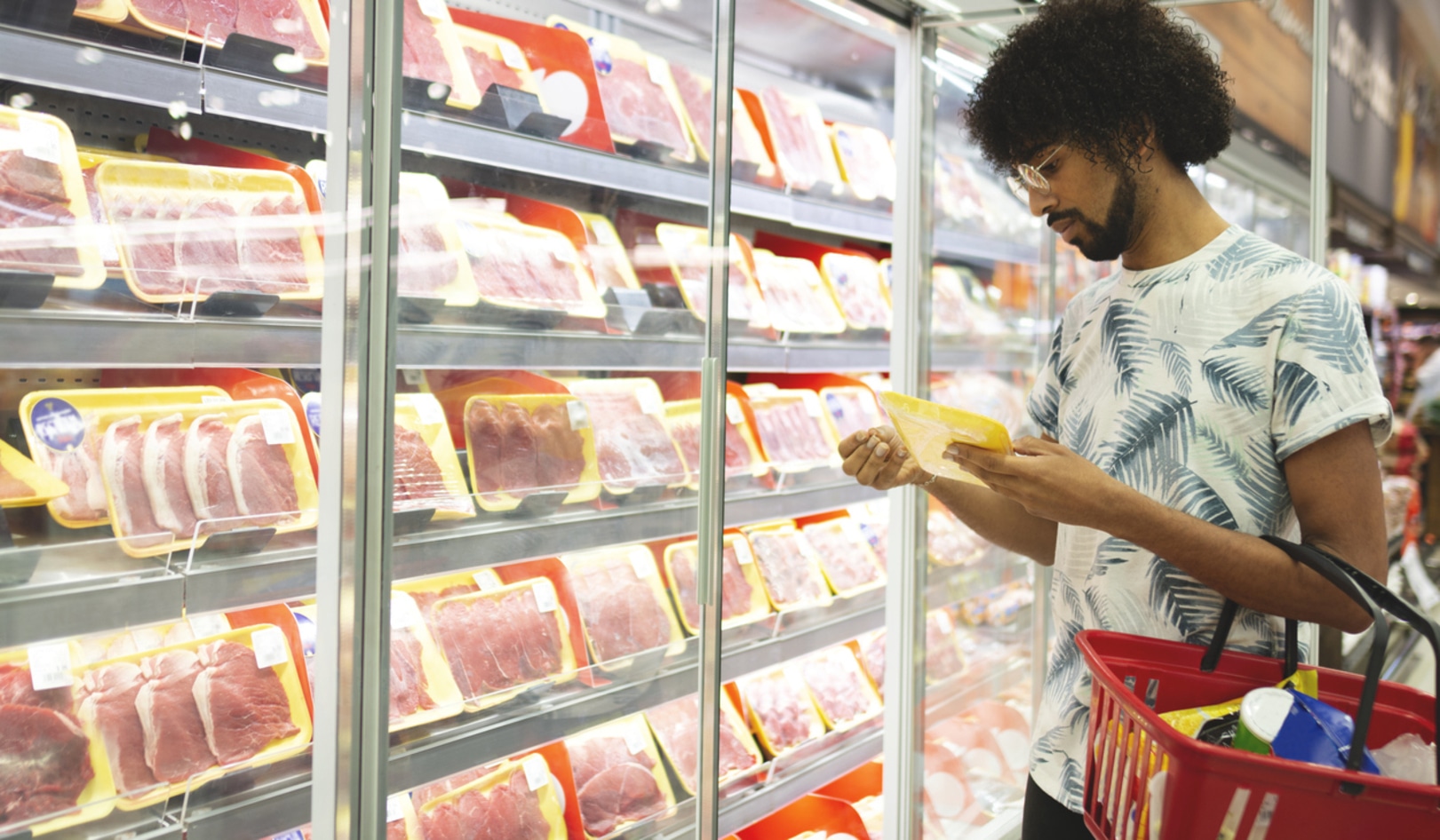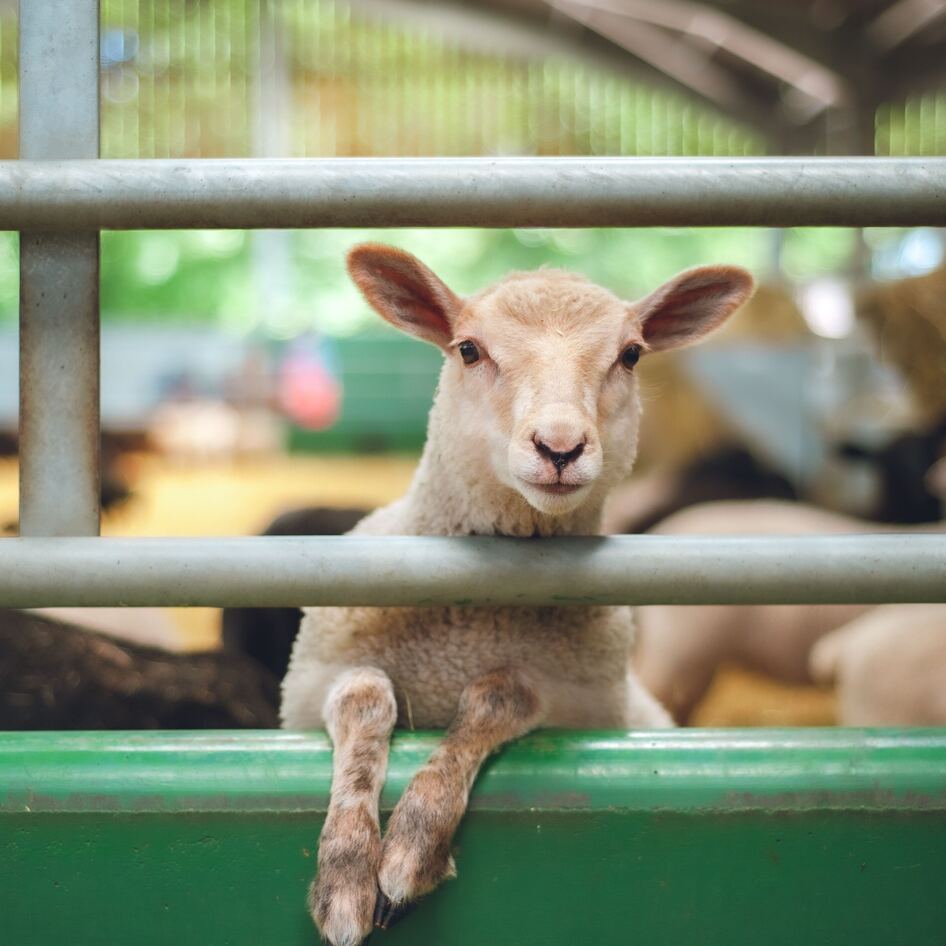Every year, millions are exploited by the meat industry. Most are animals—99 percent of chickens, pigs, cows, turkeys, and other farm animals are raised in cramped, industrialized factory farm conditions to produce meat and dairy products. But an alarming amount of those exploited by the meat industry are not farm animals, but children. Human children.
It’s hard to say exactly how many children are working in dangerous meatpacking plants right now, but Reid Maki of the Stop Child Labor Coalition estimates it’s a heck of a lot. “The US Department of Labor found earlier this year over 100 children, including some as young as 13, working in meatpacking plants in 13 facilities in eight states,” he told VegNews in 2023. “This might be the tip of the iceberg.”
When it comes to issues with meat production, much attention is rightly given to the environmental and welfare issues associated with the industry. But it’s important to highlight that human rights abuses are also seemingly rife. Last year, it was reported that Tyson Foods and Perdue Farms, two of the biggest meat producers in the US, were under federal investigation for alleged child labor violations.
 Unsplash
Unsplash
Child labor in the US meat industry
Most of the children working in the US meat industry are likely immigrants. In September 2023, The New York Times published an investigation into the issue that centered around one Guatemalan teenager who significantly injured his arm when cleaning industrial boning equipment at a slaughterhouse that supplies to Perdue. “He is one of thousands of migrant children living far from their parents and working dangerous jobs,” reported the publication.
Many of the children working in meat plants come from desperate families who send their older children to the US border, knowing that unaccompanied minors are generally allowed entry. Once in the US, the children work to send money back to their families. Workers at the Perdue slaughterhouse told The New York Times that children make up around one-third of the overnight cleaning crew.
“Conditions are Dickensian,” says Maki. “They are horrific.” He noted that the Wage and Hour Division, which is the US government department responsible for enforcing federal labor laws, has also found teens working all night before going to school in the morning.
“They were cleaning the killing floor of processing plants, using dangerous pressurized hoses and caustic chemicals,” he explains. “We know at least one child received chemical burns. The work is totally illegal and unfit for children.”
According to Maki, while it is illegal for children to work in meat plants, there aren’t enough inspectors to crack down on the problem. “Wage and Hour has about 800 inspectors for 11 million workplaces,” he says. “That means each inspector is trying to safeguard about 200,000 workers. It’s just not possible.”
 Pexels
Pexels
Meat and human rights
When questioned about the allegations of dangerous child labor, Perdue claimed to be “appalled.” A spokesperson told Food Dive that it has internal policies to prevent children from working hazardous jobs.
However, one assistant manager of the sanitation shift at Perdue implied to The New York Times that Perdue wasn’t paying very close attention to who was working where. “If companies like this looked too closely at who was working, no company would be able to keep going,” they said.
Things might get better if meat companies pay their employees more. One study from Washington State University found that many adults would take up meatpacking jobs if they were paid better. Right now, slaughterhouse work is generally a job for people with no choice. That’s why it’s predominantly an immigrant workforce. It’s exploitative to children, and to adults, too.
“It’s a dirty, dangerous job, seen by some as unseemly,” Chloe Sorvino, the author of Raw Deal: Hidden Corruption, Corporate Greed, and the Fight for the Future of Meat, recently told VegNews. “That’s why the industry has made a point of working with immigrants or seeking out refugees or other workers who may not have very many other places to work.”
It’s not just Tyson or Perdue. Much of Sorvino’s work focused on lawsuits and class actions against JBS.
“The workers at these plants are among the most vulnerable in America, and they are working some of the most dangerous jobs in America,” Sorvino says.
Is it possible to avoid products linked with child labor?
Maki says that the Stop Child Labor Coalition is advocating for the number of Wage and Hour inspectors to double over the next four years. President Biden has also called for an extra $100 million in funding to help the department detect child labor and prosecute.
Around the world, some governments have reduced child labor by offering families small cash payments to keep their children in school. Maki adds that unionization is also a powerful tool against child labor. “Where workers are unionized, there is usually no child labor because workers are empowered to speak out against labor violations like child labor,” he explained.
But for those who want to buy products that aren’t linked with minor exploitation, Maki says it can be difficult because the problem is still so widespread. It’s not just meat, either. He notes that children also work on fruit and vegetable farms, too. “Because of child labor loopholes in agriculture, they are allowed to work unlimited hours in the fields as long as they are not missing school,” he explains.
That said, there are some things that people can do to try and help tackle the problem. “We do encourage consumers to learn about child labor to advocate for resources to reduce it and to support groups involved in that effort,” Maki said.
“Consumers tend to think child labor is a tiny problem ‘over there,’” he continued. “But what we’ve learned is that it’s here, and around the globe, it is a huge issue impacting one in every 10 kids—that’s 160 million kids.”
For more on the meat industry, read:
JUMP TO ... Latest News | Recipes | Guides | Health | Shop





.jpg?sha=946cd37ffdcfc521)
.jpg?sha=55a0c9531bb68d29)


